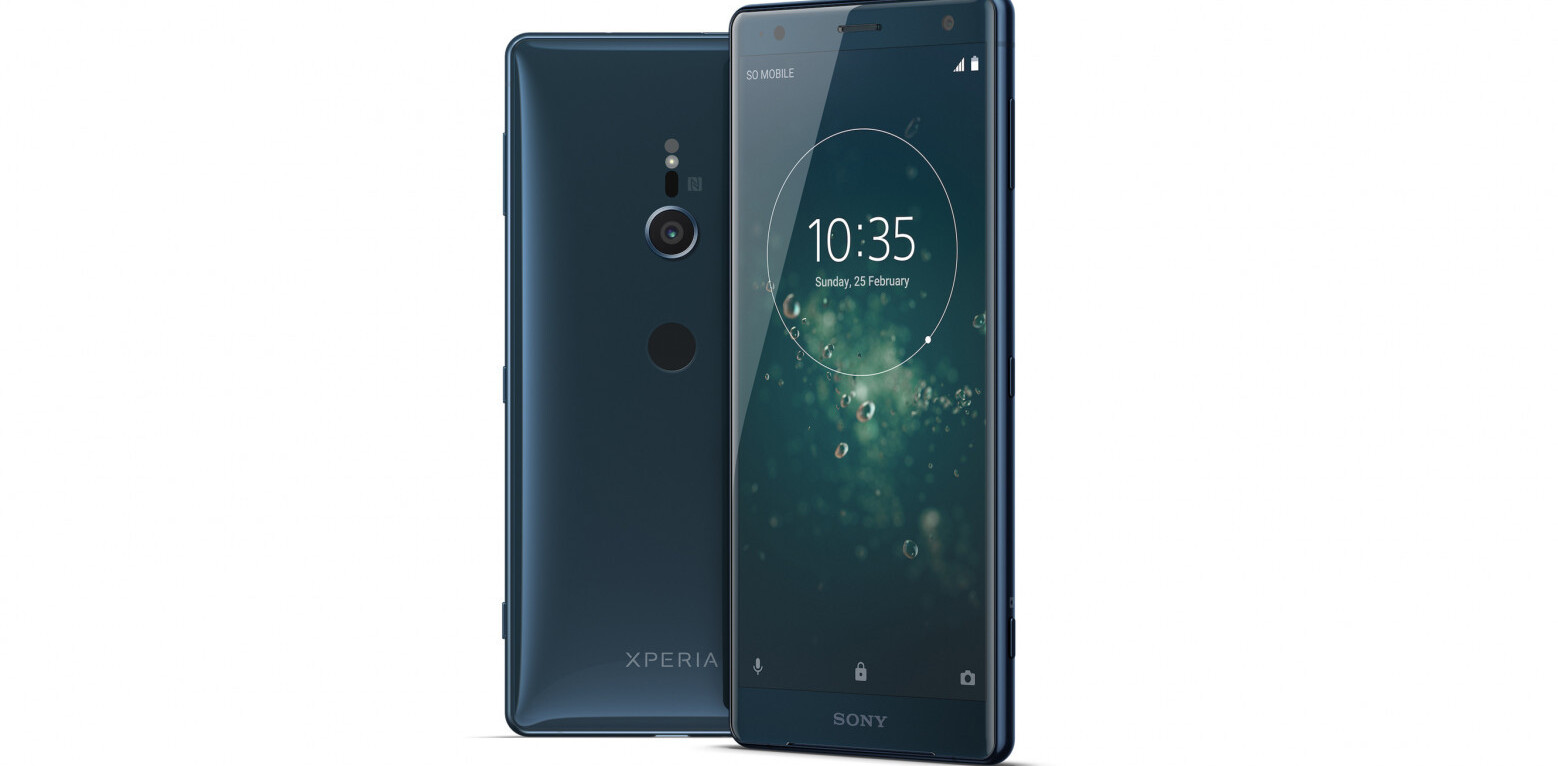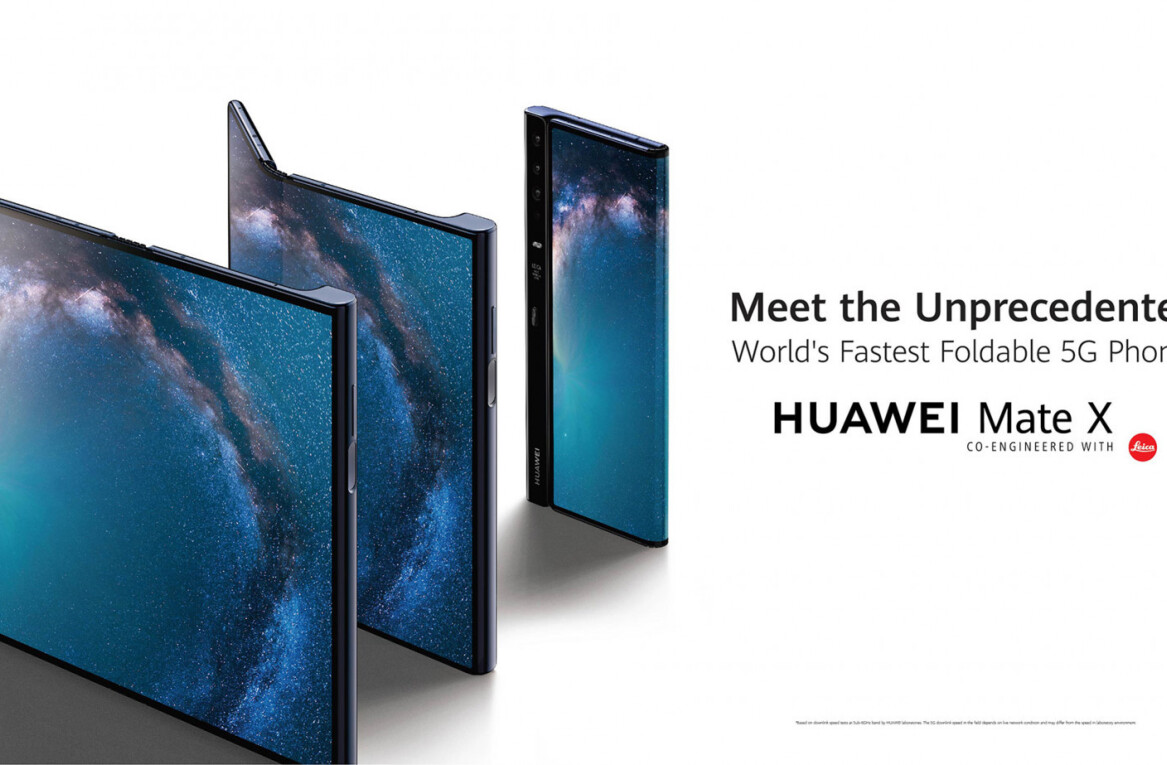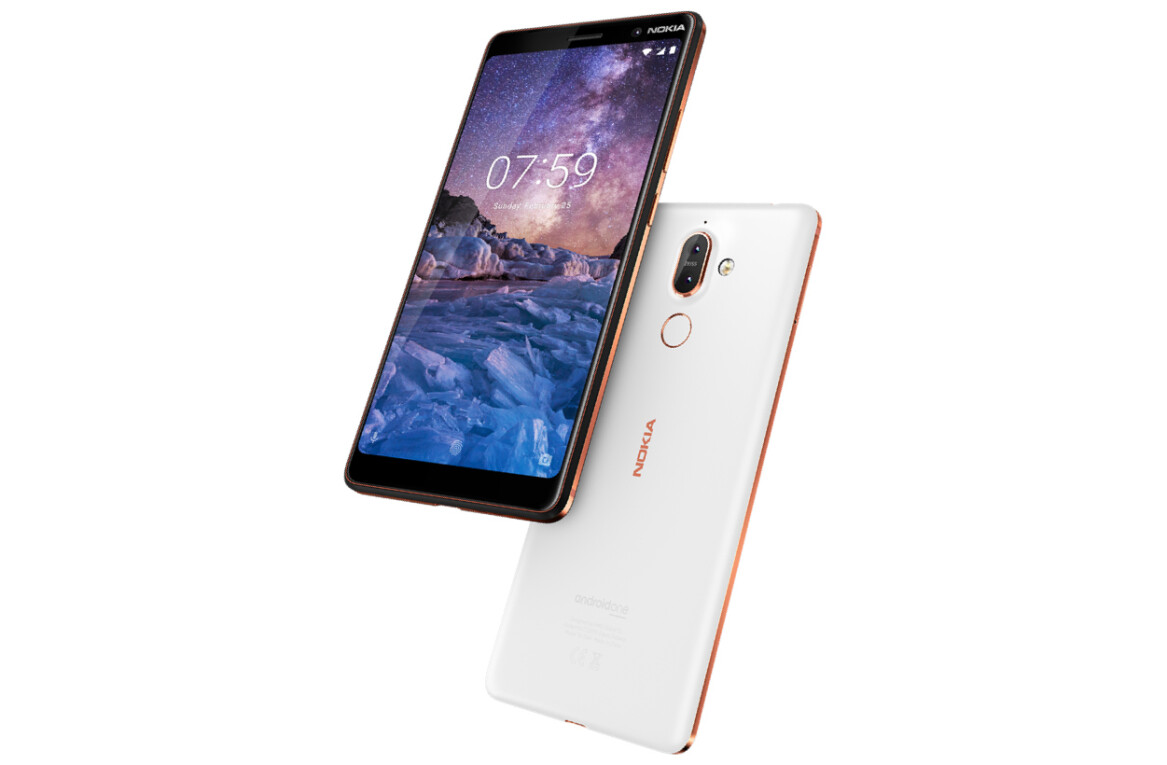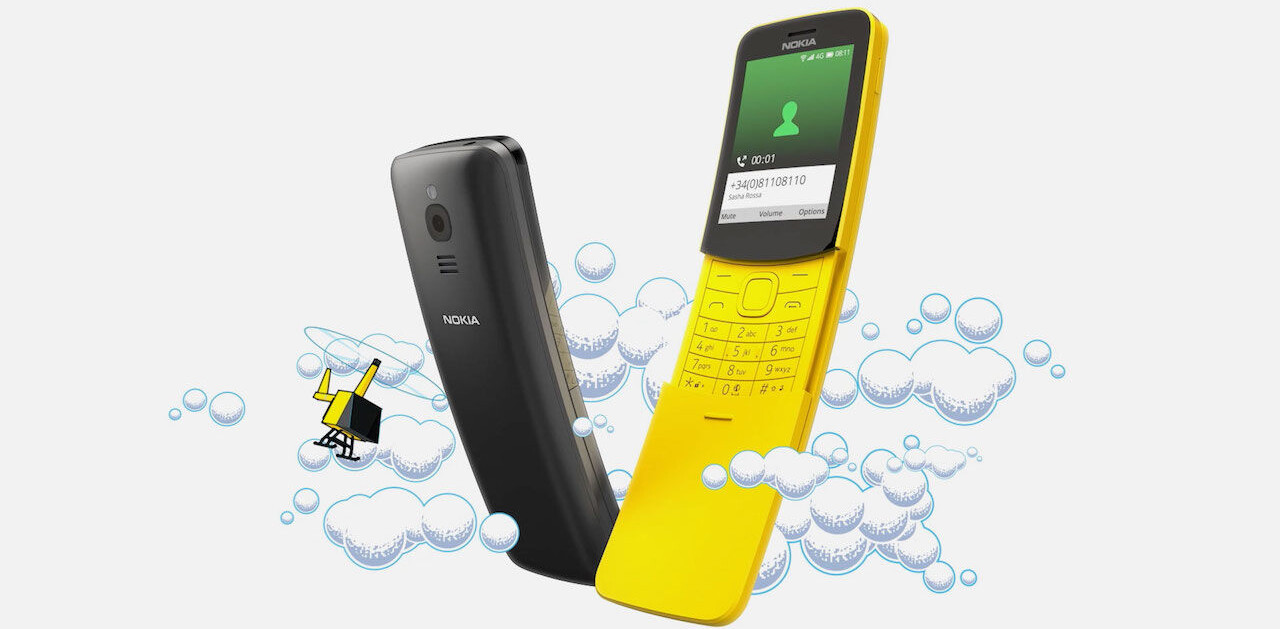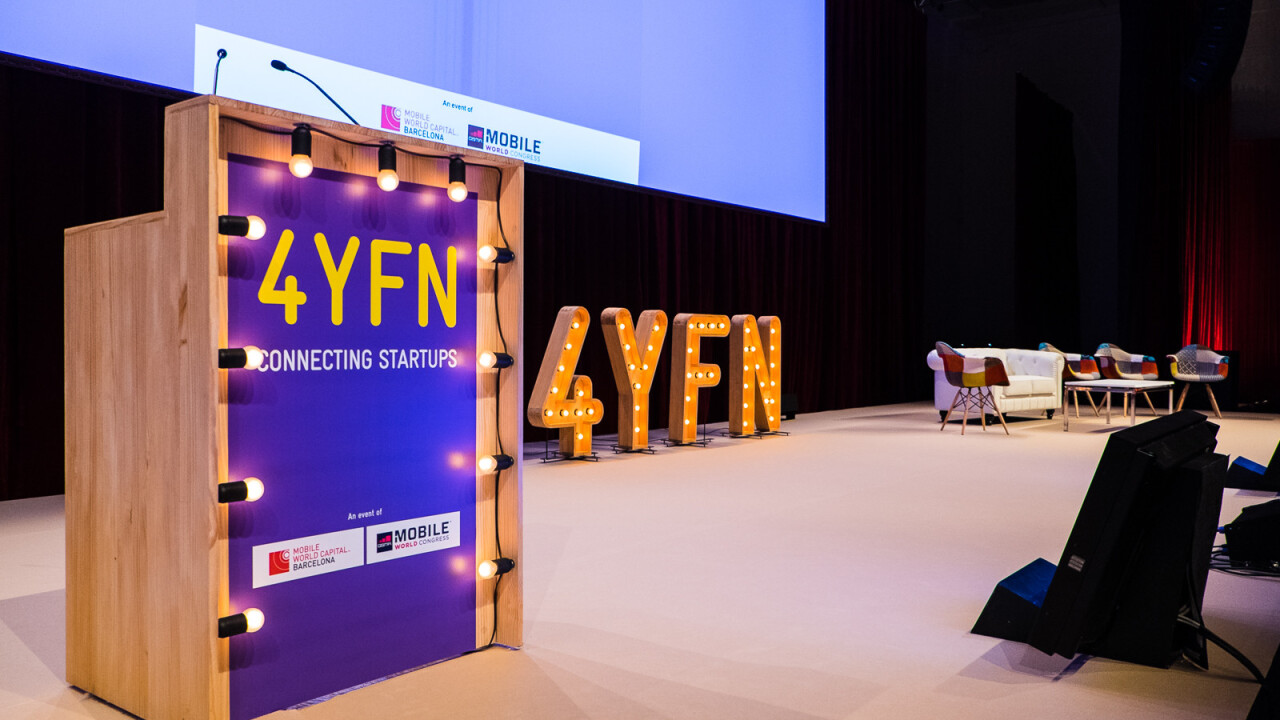
Barcelona’s Mobile World Congress (MWC) is undoubtedly the place to connect with large telcos and hear about their latest gadgets, but it has also become more and more relevant for anyone interested in mobile startups.
Most of the startup activity this year took place at twin event 4Years From Now (4YFN), which grew considerably since its first edition last year, both in terms of size and of number of visitors. According to its organizers, overall attendance tripled year-on-year, reaching 8,000 participants. The number of attending investors also quadrupled compared to 2014, with more ‘suits’ stopping by to see for themselves what the fuss was all about.
 4YFN’s venue itself was much bigger than last year, albeit without becoming as overwhelming as MWC. The many booths in its exhibition hall were either rented by standalone companies, such as France’s Sigfox, or promoted by entities such as Barcelona Activa, Colombia’s Apps.co or accelerators Conector and Lanzadera, which all showcased their own portfolio of startups.
4YFN’s venue itself was much bigger than last year, albeit without becoming as overwhelming as MWC. The many booths in its exhibition hall were either rented by standalone companies, such as France’s Sigfox, or promoted by entities such as Barcelona Activa, Colombia’s Apps.co or accelerators Conector and Lanzadera, which all showcased their own portfolio of startups.
As you can imagine, there were many interesting ones, and it would be impossible to list them all. Instead, we decided to present you a selection of startups that illustrate some of the most promising verticals of the mobile sector, from wearables and virtual reality (VR) to 3D printing to voice recognition, along with mHealth, ed-tech, food-tech and geo-location. Without further ado, here are 11 startups you should check out:
View them all on one page here.
Workouts and meal plans app: 8fit
8fit is a fitness app that provides its users with workouts and meal plans to get in shape from home. “Mobile created a better taxi and a better hotel. Now we want to build a better gym in your living room,” its founder and CEO Pablo Villalba explained when we met at 4YFN.

He is currently raising a series A round, and described attending the event as a great opportunity to connect with investors. Villalba is a Spanish-born nomadic entrepreneur who previously founded team collaboration platform Teambox, which later rebranded as Redbooth.
This track record helped him raise a $200k round led by Vitamina K, only one month after launching. The app has since since grown to 250,000 users on iOS and Android, with 35 percent monthly revenue growth coming from its subscription-based Pro version.
Coding app for kids: Codie
Codie was one of the startups showcased on the Kairos Society‘s umbrella booth at 4YFN, while its CEO Adam Lipecz was also a speaker at MWC. This Hungarian startup had a great prop to make sure passersby stopped by its booth: a competition to win one of its cute educational robots.

Codie’s goal is to teach kids how to code thanks to the companion app that lets them guide the robot toy. The models displayed at 4YFN are still prototypes, as Codie is not on the market yet, but it plans to launch a campaign on Indiegogo very soon.
Photo recipes app: Cookbooth
Barcelona-based food-tech startup Cookbooth helps users find detailed photo-recipes shared fellow foodies and chefs, some of them already quite well-known. Visuals are very important in the app’s interface, but Cookbooth also makes sure that they can be easily reproduced thanks to step-by-step instructions.
 Cookbooth boasts a cumulated 250k downloads since its initial launch on Android and iOS in 2013. Co-founded by Imagine‘s alum Malwine Steinbock, the startup graduated from acceleration program Link2Start in 2013.
Cookbooth boasts a cumulated 250k downloads since its initial launch on Android and iOS in 2013. Co-founded by Imagine‘s alum Malwine Steinbock, the startup graduated from acceleration program Link2Start in 2013.
Cookbooth was one of the 16 international finalists at the Mobile Premier Awards (MPA), whose award ceremony is held each year in Barcelona during the first day of MWC. Now in its ninth edition, it is organized by global app community Appcircus as the apex of the competitions it holds across the world during the year.
2015’s Best App Award went to Fansino, an app that connects artists with fans who are listening to their music, while the Audience Award went to Uruguay’s GPSGAY. A Big Impact Award was also awarded by Appcircus’ team to Mobile Triage, a South African app that can save live in emergency centers by quickly calculating patients’ illness levels.
First-Person camera app: First V1sion
First V1sion‘s name comes from the fact that it lets you view a sports game through the eyes of one of its players, thanks to a wearable broadcast camera. The company was a finalist at Intel’s Make It Wearable contest, and recently closed an agreement with the Euroleague. Here’s its demo video:
[youtube https://www.youtube.com/watch?v=OfYnBc86q5I?rel=0&w=560&h=315]
First V1sion was also one of a dozen of companies pitching at Telefónica’s Open Future showcase, which took place during 4YFN. Interviewed by 4YFN’s chairman Yossi Vardi, COO Jose Maria Alvarez Pallete described how the Spanish carrier was working on becoming a digital telco. As for Open Future, its role is to serve as an umbrella for all of Telefónica’s startup-related iniatives, from Wayra and Amerigo to Telefónica Ventures and China Open Future.
The 12 startups showcased at 4YFN represented a small sample of this portfolio, which now includes more than 500 companies. First V1sion aside, participants were app marketing BI company Adjust, healthcare platform Amésanté, parking finder Apparcar, cybersecurity firm Blueliv, SaaS mapping rising star CartoDB (see our recent story), AR startup EmotionsAR, parental control provider Qustodio, app promotion platform Geenapp, app creation tool Upplication, agri-tech company Visualnacert and product search engine creator VTX.
Multi-platform CRM: ForceManager
 ForceManager is a multi-platform CRM — which is way more interesting and innovative than it sounds. In practical terms, it helps salespeople easily log data about their prospects and clients, which can then be managed from any device. This includes computers and tablets, but also smartwatches. In a live demo at Spain’s MWC pavillion, CEO Oscar Macia showed us how quickly he could check into a meeting from his Moto 360 watch and use Google’s voice recognition system to dictate short notes, which appeared in an instant in his computer’s dashboard.
ForceManager is a multi-platform CRM — which is way more interesting and innovative than it sounds. In practical terms, it helps salespeople easily log data about their prospects and clients, which can then be managed from any device. This includes computers and tablets, but also smartwatches. In a live demo at Spain’s MWC pavillion, CEO Oscar Macia showed us how quickly he could check into a meeting from his Moto 360 watch and use Google’s voice recognition system to dictate short notes, which appeared in an instant in his computer’s dashboard.
While it is too early to tell whether this is the killer app that smartwatches need to take off, it definitely makes for a relevant use case that could boost their adoption. “Sales reps are early adopters. They were the first ones to use mobile phones and laptops,” Macia reminded us.
With offices in Barcelona, London and Madrid, ForceManager has already raised a $3.6 million USD financing round led by Nauta Capital, with participation from existing investor Histemi Investments.
Crowdsourcing photo app: Mapillary
 Mapillary is a crowdsourcing platform that lets its community gather and share street-level photos from all around the world. Since its creation in September 2013, it has helped collect and combine almost 9 million pictures, mapping more than a quarter million kilometers.
Mapillary is a crowdsourcing platform that lets its community gather and share street-level photos from all around the world. Since its creation in September 2013, it has helped collect and combine almost 9 million pictures, mapping more than a quarter million kilometers.
Mapillary’s CEO Jan Erik Solem also took part in a panel discussion on online mapping at MWC, where the discussion quickly focused on Uber’s acquisition of mapping startup deCarta.
While this deal confirmed the growing importance of mapping for many types of businesses, it didn’t alter Mapillary’s belief in openness and independence: “I really think there’s space in the mapping sector for an independent player in each vertical,” Solem told us.
His startup had the luck to find big name investors who backed this vision; a few weeks ago, it announced having raised a seed round of $1.5 million led by Sequoia with participation from, Playfair, LDV Capital, Wellington, and ‘a number of prominent angel investors.’
With its funding needs now covered, Mapillary saw MWC as an opportunity to seek potential partnerships for data collection and data usage. In addition, Solem also seeked new connections with the manufacturers behind the mobile devices and action cameras that Mapillary users rely on to take pictures. Finally, the Swedish startup took advantage of MWC to organize a community building meetup at Barcelona’s Horta Labyrinth, during which a dozen of geogeeks teamed up to map and photograph the maze.
Home swapping app: MyTwinPlace
MyTwinPlace is a Barcelona-based home swapping startup that we first discovered during Wayra Spain’s demo day at 4YFN 2014. Since then, it has grown from 5,000 to 20,000 members and registered a 400 percent year-on-year revenue increase from its subscription-based model. Its inventory has also expanded, thanks to one of its key features: a ‘1-click system’ that lets users easily import listings and calendars from home rental websites such as Airbnb, HomeAway and Rentalia.

Commercial third-party listings also support MyTwinPlace’s recently launched Nights Exchange platform: “These allow us to get a real value of each house in points,” CEO Jean-Noël Saunier explained. This points-per-night value has become the internal currency of MyTwinPlace, which has helped it stand out from its competitors.
As a matter of fact, the nights exchange model means that home swapping on MyTwinPlace doesn’t have to be strictly reciprocal. Instead of looking for an elusive perfect match based on their date and destination preferences, its users can use their credit to get cost-free accommodation from any fellow community member.
Saunier is convinced that this approach creates a much larger opportunity for home swapping: “What’s interesting is that 33 percent of all bookings are for 4 nights or less, and 12 percent are last-minute (booked a week beforehand). [Those] are definitively not possible with the reciprocal model.”
Full-face diving mask: Nautilus VR
Nautilus VR was somewhat of a showstopper at 4YFN, partly because of its looks — a cross between a full-face diving mask and a VR headset, which made for a fairly strange sight whenever participants tried it on.
While it looked surprising out of its natural habitat, the Nautilus VR turned out to be aptly designed for its purpose: to let anyone virtually experiment the thrills of deep diving from the comfort of a traditional swimming pool.

Calculator app: PhotoMath
 PhotoMath does exactly what its name promises: take a picture of an equation, and the app will solve it for you — or for your kid. Founder Damir Sabol got the inspiration from helping his own children with their homework and checking answers: “It was very boring, and I thought of using the technology we already had developed at MicroBlink,” he explained.
PhotoMath does exactly what its name promises: take a picture of an equation, and the app will solve it for you — or for your kid. Founder Damir Sabol got the inspiration from helping his own children with their homework and checking answers: “It was very boring, and I thought of using the technology we already had developed at MicroBlink,” he explained.
PhotoMath’s parent company MicroBlink indeed specializes in computer vision solutions, which it sells to corporate clients. On one hand, banks license its BlinkOCR technology to give clients an quick way to scan payment slips within their apps. On the other hand, BlinkID is an SDK that developers can integrate to make pieces of identification easier to upload.
Considering its success, it is quite amusing to think that PhotoMath only started out as a way to showcase MicroBlink’s B2B side. Not only did it receive hype when it debuted at TechCrunch Disrupt London last year, but its popularity was also confirmed once more a few days ago, when its newly launched Android app reached Google Play’s top 10 in the Education category.
Based on Sabol’s explanations, PhotoMath is much more educational and far less controversial than it may sound. In addition to displaying the steps that help it find the right solution in a human-like manner, the app will soon integrate math lessons.
PhotoMath was also one of 500 companies that had participated in the 4YFN Awards‘ startup competition, and was picked up as the winner in the Digital Media category. Fellow laureates were Spanish travel startup Caravelo in the ‘Disrupted by Mobile’ category and London-based courier solution Hanhaa in the IoT category.
Foodprinting: Robots in Gastronomy
 Robots in Gastronomy is a food printing project that entertained guests of 4YFN’s MLOVE pavillion with yummy real-time creations. Although its Food Form robot spent most of the event playing with chocolate, it can also work from other edible materials, such as sugar and… pasta.
Robots in Gastronomy is a food printing project that entertained guests of 4YFN’s MLOVE pavillion with yummy real-time creations. Although its Food Form robot spent most of the event playing with chocolate, it can also work from other edible materials, such as sugar and… pasta.
 One of Robots in Gastronomy’s latest hits is a pasta design called Vortipa, which won a contest held by Italian food brand Barilla. Organized by Italian firm Thingarage, PrintEat described itself as the “first 3D modeling competition aimed at creating new shapes of pasta using 3D printing technologies.”
One of Robots in Gastronomy’s latest hits is a pasta design called Vortipa, which won a contest held by Italian food brand Barilla. Organized by Italian firm Thingarage, PrintEat described itself as the “first 3D modeling competition aimed at creating new shapes of pasta using 3D printing technologies.”
While Robots in Gastronomy is Barcelona-based, its team is international and claims to include “Michelin star chefs, industrial designers, interaction designers and high-end kitchen equipment distributors.” As a result, its Food Form printer comes in different sizes, with an open design that makes it more adaptable to specific requests from chefs.
Interestingly, Robots in Gastronomy was one of several food-tech startups in attendance, alongside above-mentioned Cookbooth, KickDish, Edamam and others, whose presence was yet another sign of Barcelona’s and MWC’s role in showcasing both gastronomy and technology.
Offline map: Trimaps
Trimaps‘ mission its to turn its clients’ offline maps into digital ones, with all the benefits that it brings for end users, from easily finding points of interest to geo-locating themselves and their friends. Its clients so far range from a ski domain in the Alps to a resort in Mexico, its co-founder Jonathan Fallon told us.
As you may remember, Trimaps was one of the finalists pitching on stage at The Next Web Conference in New York City last December. It is now gearing up to launch out of beta and start providing customers with a full-on solution that won’t require any technical skills on their end.

Trimaps was one of the startups participating in 4YFN under the umbrella of Startups.be, a consortium of organizations that support Belgium’s startup ecosystem. Startups.be organizes two events of its own, Failing Forward and Tech Startup Day, which will take place in Brussels on March 12.
According to its recently hired innovation manager, Thibaut Claes, Startups.be sees conferences as a better networking opportunity than trips and tours. As a result, it has been coordinating attendance in 12 conferences this year, including 4YFN.
“4YFN can help our members connect with fellow mobile startups while also connecting with MWC attendees who are stopping by,” Claes said. He also noted that the event was a good opportunity for participants to get familiar with investors and field-test their pitches, which they had already rehearsed in Brussels during a Kickoff event.
Trimaps aside, participants were sports predictions platform Generycs, app optimization and protection provider Guardsquare, customer satisfaction measurement tool Hello Customer, wearable gamification app Movebattle, group planning app Planza, surveying platform Surveyanyplace, R&D startup e-Nventorslab and IoT startup Sentiance, which recently raised a series A round of funding to help mobile developers leverage sensor data.
Image credit: Dan Taylor/Heisenberg Media (via Flickr)
Have other interesting startups caught your eye at MWC this year? Let us know in the comments.
Get the TNW newsletter
Get the most important tech news in your inbox each week.
